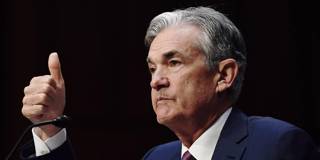Defenders of central-bank independence argue that quantitative easing should have been avoided last time and is best avoided in the future, because it opens the door to political interference with the conduct of monetary policy. But political interference is even likelier if central banks shun QE in the next recession.
KONSTANZ – The policy interest rates of advanced-country central banks are stuck at uncomfortably low levels. And not just for the moment: a growing body of evidence suggests that this awkward condition is likely to persist. Inflation in the United States, Europe, and Japan continues to undershoot official targets. Measures of the “natural” rate of interest consistent with normal economic conditions have been trending downward for years.
Estimates of the natural rate for the US currently put it in the range of 2.25-2.5% – in other words, just where the Federal Reserve’s policy rate is lodged. This means that the Fed has little scope for tightening without missing its inflation target and endangering economic growth. And what is true of the Fed is truer still of the European Central Bank and the Bank of Japan.
This ceiling on the feasible level of interest rates means that when the next recession hits, central banks will have little scope for reducing them. To be sure, certain creative members of the central banking community have experimented with negative interest rates. But scholarly post-mortems suggest that negative rates adversely affect commercial banks’ profitability and weaken the banking system. It follows that risk-averse central bankers will be loath to repeat these experiments.

KONSTANZ – The policy interest rates of advanced-country central banks are stuck at uncomfortably low levels. And not just for the moment: a growing body of evidence suggests that this awkward condition is likely to persist. Inflation in the United States, Europe, and Japan continues to undershoot official targets. Measures of the “natural” rate of interest consistent with normal economic conditions have been trending downward for years.
Estimates of the natural rate for the US currently put it in the range of 2.25-2.5% – in other words, just where the Federal Reserve’s policy rate is lodged. This means that the Fed has little scope for tightening without missing its inflation target and endangering economic growth. And what is true of the Fed is truer still of the European Central Bank and the Bank of Japan.
This ceiling on the feasible level of interest rates means that when the next recession hits, central banks will have little scope for reducing them. To be sure, certain creative members of the central banking community have experimented with negative interest rates. But scholarly post-mortems suggest that negative rates adversely affect commercial banks’ profitability and weaken the banking system. It follows that risk-averse central bankers will be loath to repeat these experiments.